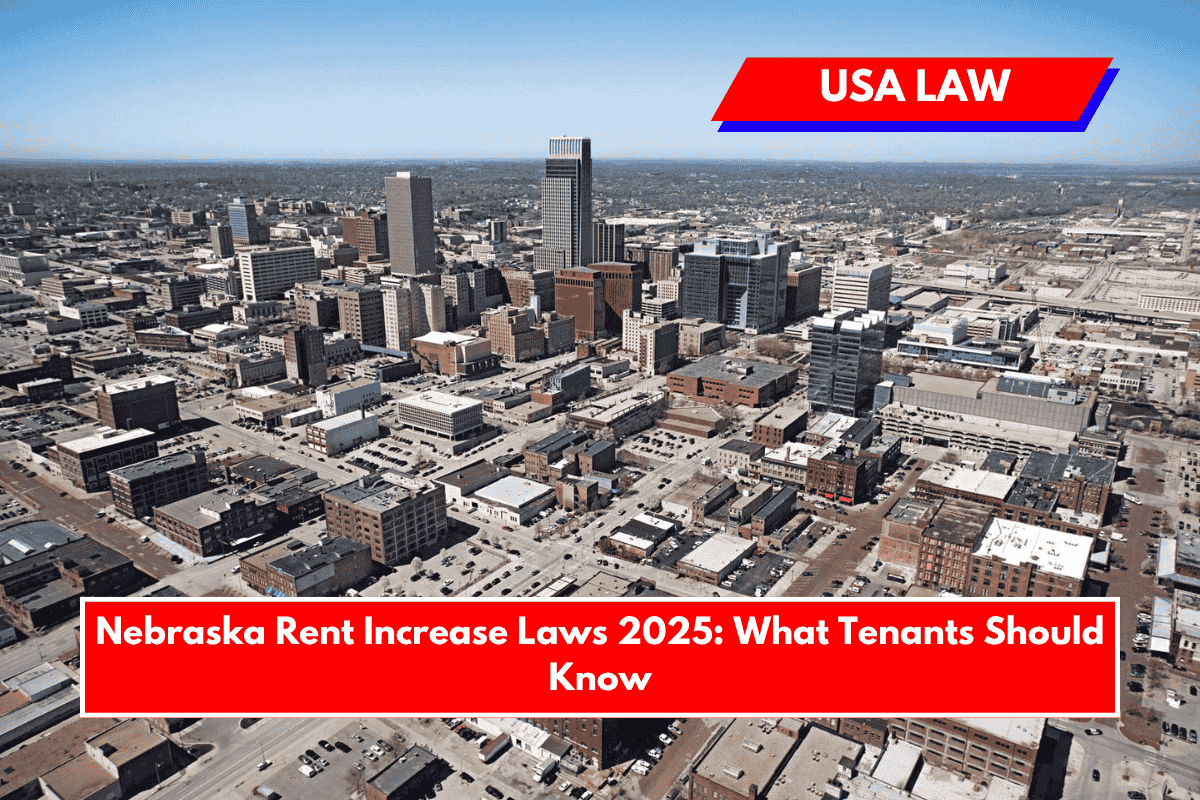Nebraska’s rent increase laws for 2025 remain largely unchanged, with a continued absence of rent control and broad discretion given to landlords regarding rent adjustments. Here’s what tenants in Nebraska should be aware of:
No Rent Control in Nebraska
Nebraska does not have any statewide rent control laws—nor do any of its cities or counties impose local rent control ordinances. This means landlords are free to set and raise rent prices based on market conditions without legal caps on the amount or frequency of increases.
Notice Requirements
Landlords must provide tenants with written notice before increasing rent. The required notice period depends on the type of rental agreement:
- Month-to-Month Leases: At least 30 days’ notice before the increase takes effect.
- Week-to-Week Leases: At least 7 days’ notice.
- Mobile Home Tenants: At least 60 days’ notice.
If a landlord fails to provide the required notice, the rent increase is not legally enforceable.
When Can Rent Be Increased?
- During a Fixed-Term Lease: Rent cannot be increased unless the lease specifically allows for it. Most fixed-term leases lock in the rent for the duration of the lease.
- At Lease Renewal or End of Term: Landlords can raise the rent at the end of a lease term, including for month-to-month agreements, as long as proper notice is given.
- Frequency of Increases: There is no limit on how often rent can be increased, as long as proper notice is provided each time.
Protections Against Retaliation and Discrimination
While landlords have significant leeway to raise rent, they cannot do so for discriminatory or retaliatory reasons. Rent increases based on a tenant’s race, color, religion, sex, familial status, national origin, disability, or other protected characteristics are illegal under federal and state fair housing laws.
Similarly, landlords cannot raise rent in retaliation for a tenant exercising their legal rights, such as reporting housing code violations or joining a tenant organization.
What Tenants Can Do
- Review Lease Agreements: Understand the terms regarding rent increases and notice periods.
- Document Communication: Keep records of all notices and correspondence with your landlord.
- Know Your Rights: If you believe a rent increase is discriminatory or retaliatory, you can file a complaint with the Nebraska Equal Opportunity Commission or seek legal assistance.
- Legal Remedies: If a landlord fails to provide proper notice or engages in unlawful practices, tenants may have legal recourse, including withholding rent (under specific conditions) or pursuing action in small claims court.
Summary Table
| Lease Type | Notice Required | Rent Increase Limit | Protections |
|---|---|---|---|
| Month-to-Month | 30 days | None | Anti-discrimination, no retaliation |
| Week-to-Week | 7 days | None | Anti-discrimination, no retaliation |
| Mobile Home | 60 days | None | Anti-discrimination, no retaliation |
| Fixed-Term | As per lease | None (unless lease allows) | Anti-discrimination, no retaliation |
Key Takeaways
- No rent control: Nebraska landlords can raise rent by any amount and as often as they want, as long as proper notice is given.
- Notice is required: Tenants must receive written notice before any rent increase takes effect.
- Protections exist: Rent increases cannot be discriminatory or retaliatory.
- Lease terms matter: Fixed-term leases generally lock in rent unless otherwise specified.
Tenants should stay informed about their lease terms and rights to ensure fair treatment under Nebraska’s landlord-tenant laws.
SOURCES:
- https://www.steadily.com/blog/rent-increase-laws-regulations-nebraska
- https://www.hemlane.com/resources/nebraska-rent-control-laws/
- https://www.steadily.com/blog/how-much-can-a-landlord-raise-rent-in-nebraska
- https://www.hemlane.com/resources/nebraska-tenant-landlord-law/











